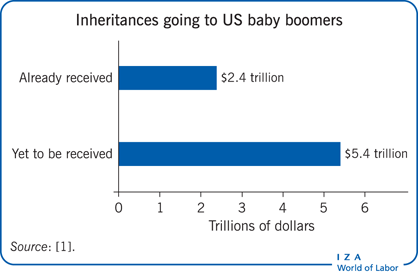Elevator pitch
Inheriting money can be a problem since the new wealth might sap the beneficiaries’ incentive to work. Or it could do the opposite, by facilitating entrepreneurship among those whose ambition to start a business had been stymied by a lack of cash. Recent evidence suggests inheritance-related work disincentives can be strong—unexpected inheritances can matter a lot for early retirement, for example. But where inheritances facilitate self-employment, as some evidence suggests, the labor supply might increase.
Key findings
Pros
Inheritances encourage entrepreneurship by easing the liquidity constraints on starting a business.
Labor supply could be stimulated by inheritances, since the self-employed tend to work more hours than wage and salary workers do.
The larger the inheritance, the more viable the enterprise.
Cons
Large inheritances discourage labor force participation among workers who are in the prime of their working life.
Inheritances lead older workers to retire earlier than planned.
If inheritances are unexpected, they increase the chances of retiring.
Inheritances are associated with reduced work hours, but the estimated effects show only a small reduction.
